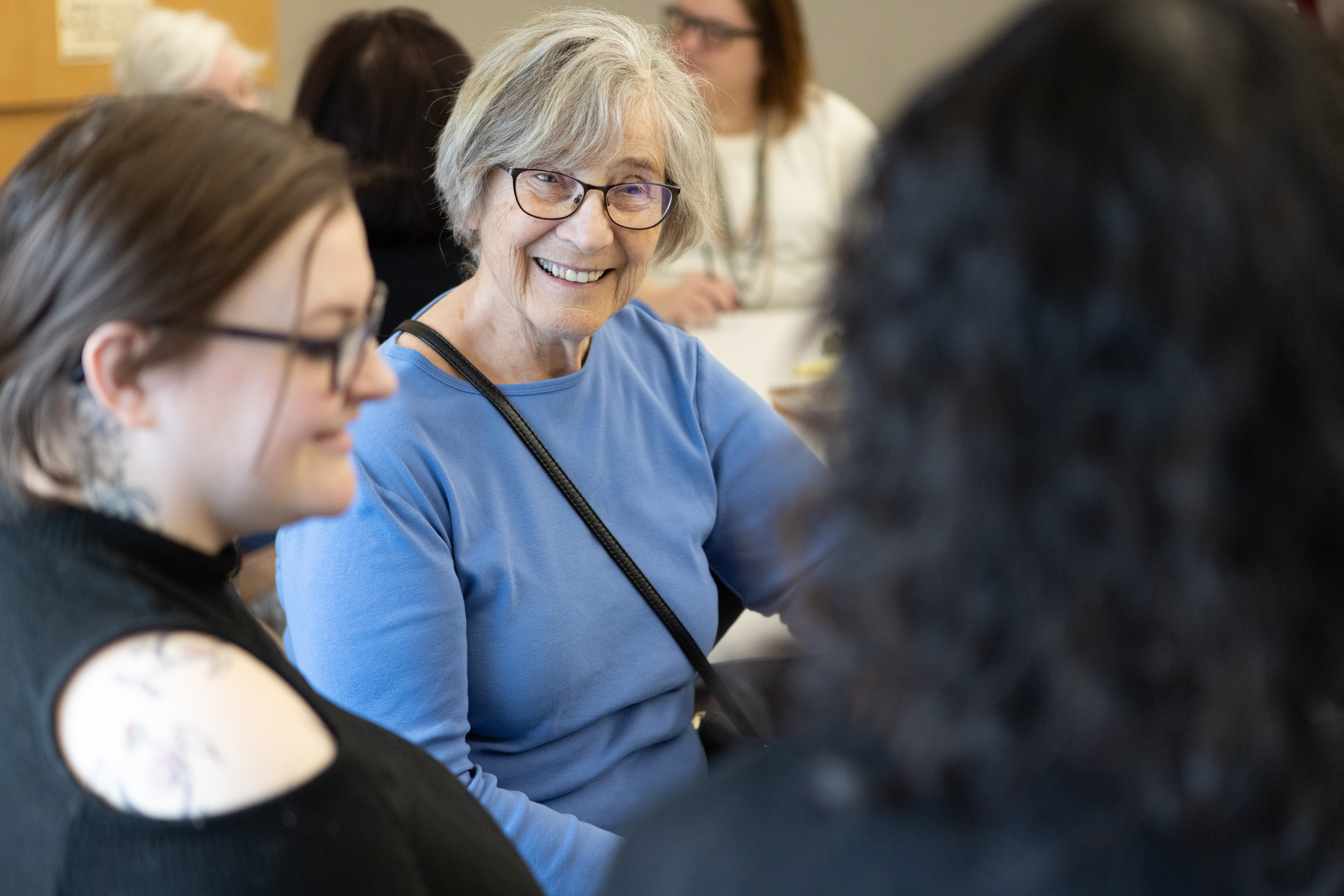Community Anti-Racism Education Initiative (C.A.R.E.)
Campus Workshops
C.A.R.E. Campus Workshops
 The workshops for SCSU employees offer hands-on activities, interactive discussions, and customized approaches that promote anti-racism and belonging. Participants report that workshops offer real-world scenarios and practical steps to increase their self-understanding, cultural intelligence, and empathy to strengthen the university and the community.
The workshops for SCSU employees offer hands-on activities, interactive discussions, and customized approaches that promote anti-racism and belonging. Participants report that workshops offer real-world scenarios and practical steps to increase their self-understanding, cultural intelligence, and empathy to strengthen the university and the community.
Why we use "stones" as a metaphor
Stones represent memorial and remembrance; their weight can call us to action. In Minnesota’s watershed, as the waters recede, they appear as guides directing us where to journey next. In the Granite City of St. Cloud, they form a bedrock of identity and economic opportunity.
Our workshops use the metaphor of the stepping stones to guide participants to acknowledge and affirm our community so we can act with care, compassion, and empathy. Using a framework of appreciative inquiry, workshops generate curiosity and commitment to change our personal and interpersonal relationships. Workshops can be taken individually or completed as a set, helping participants move from individual islands of effort toward archipelagoes of collaboration and transformative change.
Workshop Stones: Acknowledge, Analyze, and Act to Dismantle Structural Racism
Stone One
Acknowledge, Analyze, Act: Dismantling Racism through Stories.
This workshop places weight on acknowledging our community. Employees, students, and community members will unpack definitions, differentiate between interpersonal versus structural forms of power, examine our social positions, and form an action plan to include all members of our community in one of the following areas: 1) housing, 2) education, 3) law, 4) healthcare, 5) land/environment, 5) play/recreation.
Workshop Outcomes:
- Increase shared definitions and language to acknowledge all people
- Examine social positions that generate differences
- Understand structural and interpersonal forms of power
- Increase curiosity about cultural humility
Upcoming Session
- Monday, April 28, 2025, 1-4 p.m.
Hybrid In-Person and Online Option
- Register via Huskies Connect
This workshop fulfills the CARE Workshop requirement for all new SCSU employees.
Stone Two
Affirming Our Community
This workshop places weight on affirming our community. Students, employees, and community members will affirm their social identities and contributions. This workshop focuses on different communities' assets. Participants will use active learning techniques to discover their strengths, consider their dreams, co-design solutions, and create a process to deliver a defined outcome. This workshop helps participants turn deficit assumptions about people or groups into asset-based strategies.
Workshop Outcomes:
- Differentiate between deficit and asset-based thinking about groups or cultures
- Explore personal dreams and how dreams are embedded in different cultural contexts
- Increase empathic listening about intercultural differences
- Engage participants in the ability to co-design meaningful solutions to respect all students, employees, and community members
Upcoming Session
- Thursday, March 27, 2025, 1-4 p.m.
In-Person Session
- Register via Huskies Connect
This workshop fulfills the CARE Workshop requirement for all new SCSU employees.
Other Stones
Cultural Humility: Supervising across Race, Culture and Identity
An advanced workshop for supervisors and graduate students that explores race, culture, and identity. It dissects oppressive practices and offers practical ideas that will guide everyday work.
Anti-Racist Pedagogy Across the Curriculum: (ARPAC)
The Minnesota State award-winning ARPAC workshop for faculty and teaching graduate students provides intensive training about incorporating anti-racist pedagogy into courses across disciplines.
ARPAC fosters a community of educators committed to anti-racist praxis, which supports faculty in teaching. Learning outcomes include examining theory, structure, and the practice of racism and power relations embedded in history and academic disciplines; raising self-awareness of social locations and knowledge production; empowering students by validating and acknowledging everyday experiences; fostering critical thinking and equipping students with anti-racist language and discussion skills; creating a sense of community in the classroom; and developing skills for anti-racist methodologies in the classroom.
 The workshops for SCSU employees offer hands-on activities, interactive discussions, and customized approaches that promote anti-racism and belonging. Participants report that workshops offer real-world scenarios and practical steps to increase their self-understanding, cultural intelligence, and empathy to strengthen the university and the community.
The workshops for SCSU employees offer hands-on activities, interactive discussions, and customized approaches that promote anti-racism and belonging. Participants report that workshops offer real-world scenarios and practical steps to increase their self-understanding, cultural intelligence, and empathy to strengthen the university and the community.